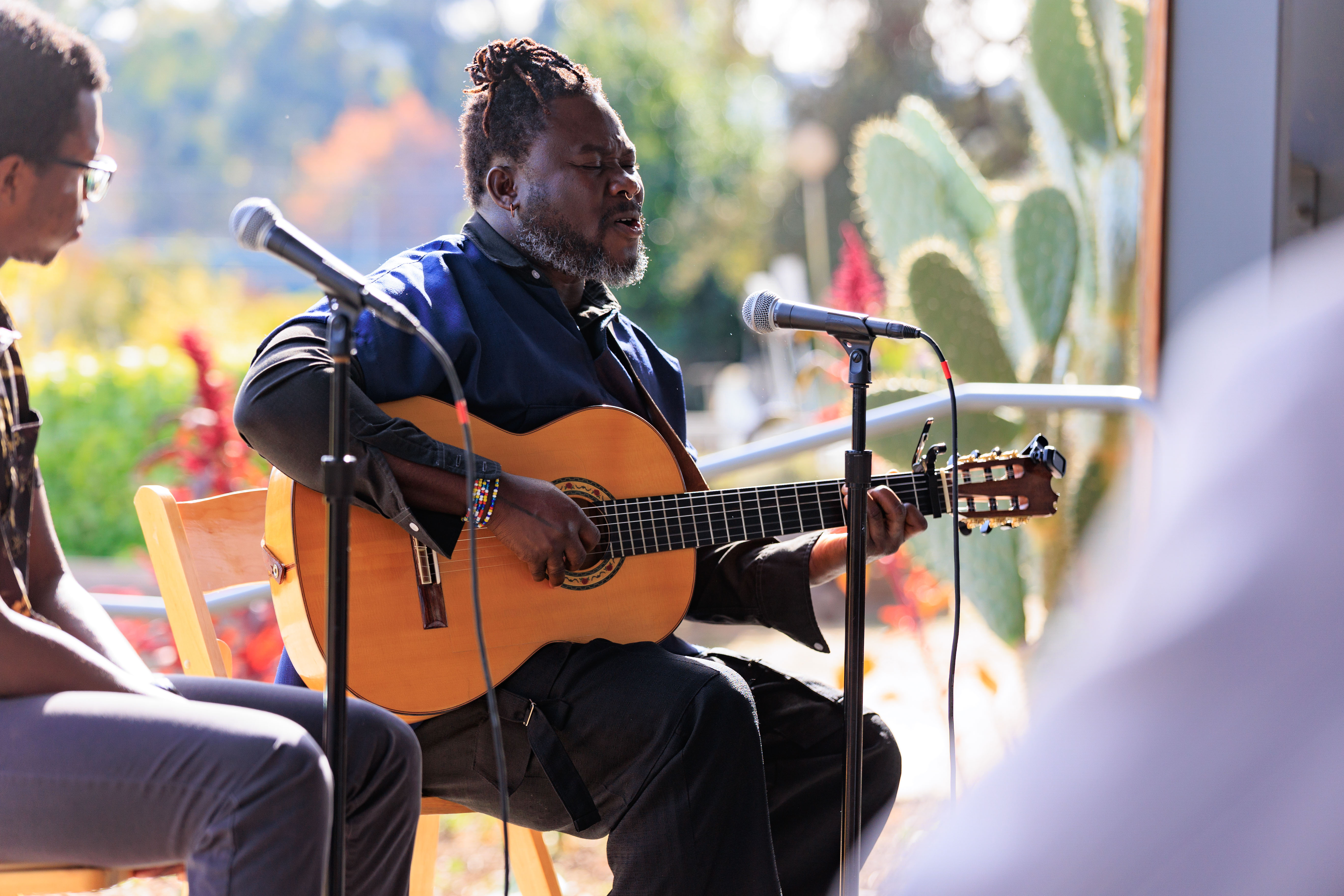Portland-based musician Okaidja Afroso made a pit stop on Friday at Stanford’s O’Donohue Family Farm to discuss his work’s cultural and environmental roots. Against the early afternoon’s backdrop of vibrant flowers and crops, Afroso conversed with music major Sam Ogunsanya ’23 about recognizing and crediting his community in Ghana. Specifically, he attributed the tunes of his acoustic music from his 2022 multimedia project “Jaku Mumor” to the language and stories of Ghanian fishermen.
To get the audience into the groove, Afroso began by singing “Akkomo Nnane,” which is a song Afroso heard frequently while growing up in Ghana. The song translates into the phrase “don’t hold my leg,” which means “don’t hold me back.”
Besides its message, “Akkomo Nnane” provided context for the rest of the talk in terms of controlling your own path. Afroso also sang “Aton Ke Aton,” translating to “we are all one people,” which was sentimental enough for one listener to share their emotion with the audience.
One of the first questions Ogunsanya asked Afroso was how his time in Ghana shaped his art and musical direction. Afroso explained that most people in his small town were fishermen and, despite their educational limitations, recognized their importance as cultural bearers. Without them, “[the local] culture will be gone.”
“I realize that the word ‘education’ is totally misplaced,” Afroso said. “I think people only see education as going to sit in the classroom — academic education — but for people in the main parts of Africa, education is cultural education. How do you know what you know about yourself?”
He also mentioned that he “reached back for all traditions” when creating the album, going back to Ghana to uncover the cultural ties within himself and key cultural figures, like the fishermen.
Afroso further discussed how his audience fit into the purpose of his work. While he said that it was for Ga-Dangme people and to represent the ecological knowledge of indigenous Africans, he also stated that the musical melodies are suited for a broad perspective across borders and cultures. He even mentioned that 49 different languages are spoken in Ghana, and that music serves as a universal language for all.
“I think, for all of us, the human to human connection is the same no matter what,” Afroso said. “If you hear a certain sound and the way it makes you feel is the same way it’s gonna make me feel, regardless of culture and everything else.”
Ownership was also a large part of the conversation — beginning with the fact that Afroso credits the fishermen for each song on the album, extending a hand into cultural preservation. He also discussed onboarding others outside of the culture onto the project. While collaborators already brought in the raw skill to replicate what he asked for, Afroso noted that he would also explain the stories behind his work to others to ensure the integrity and collective contributions to the project.
Afroso called on younger generations to, once more, pursue and preserve the histories of the past. Due to globalization, language and ideas are constantly on the verge of disappearing. Though he aimed to encourage artistic expression through the conversation, exploring and showcasing culture was Afroso’s top priority.
“[To young Africans,] we have to take charge. We have to write books about ourselves. We have to make movies about ourselves so that we are in the front seat [for] the narratives about us,” Afroso said. “Because that’s the only time that we can tell the stories that are in our best interest for the younger generation.”
